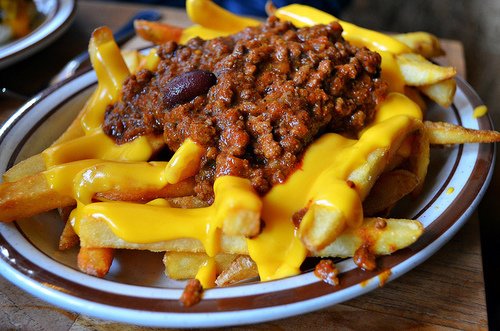
With heart-shaped boxes of candy finally in the past (at least for this year), we’re now looking at the summer season just around the corner. The huge variety of restaurants here in the Cape Region can make it hard to maintain a beach-worthy shape. We humans are imaginative creatures, and we’ve perfected a long list of reasons to eat excessively, over and above the obvious reasons … like hunger, for example.
Apparently, we need extra vitamins and minerals to cope with the trauma of birthdays. And anniversaries. And funerals. And graduations. And the strenuous act of watching a movie. Not to mention vacations! Think about the corn dogs, funnel cakes, fries, frozen custard cones, cheesesteaks and crispy slices with pepperoni that have disappeared without a trace during a carbohydrate-laden stroll down the boardwalk.
As a psychotherapist (who feels that chili fries should be a dessert item), I’ll ignore the obvious fact that we like to do things that feel (taste) good. We’re wired that way. Happiness should always be the default, and there’s nothing like an Italian sub to help with that default thing. But I try to examine not just what we eat, but our emotional state WHEN we eat.
“I eat when I’m depressed.” “I eat when I’m happy.” What triggers us to reward ourselves when we’re feeling strong emotions? Occasionally, I’ll find myself asking a client: “What were you feeling when you were standing over the sink, in the dark, with that chocolate éclair? Anger? Frustration? Joy? Sadness? Did the emotion make you want to eat, or did the eating bring on the emotion?”
To answer that question, I sometimes suggest that clients keep a journal of what they’re feeling at the moment they want to eat (outside of normal mealtimes). I make it clear that this is not a diet. “It’s simply a way to understand what’s going on in your mind when you want to snack compulsively. Then, after writing down your feelings and thoughts, go ahead and eat.” It’s amazing what people discover! One woman I knew years ago realized that whenever she wanted to snack, she was thinking about her mother, who was nasty to her. The mere recognition of this fact made her furious. “I don’t want my mother controlling my life any more!” she declared. And, to my surprise, she lost 30 pounds and kept it off.
Two things make the struggle with overeating particularly difficult. The first is that the decision to change has to be lifelong. Even that word, “diet,” implies a short-term effort. But, like marriage, it must be an ongoing commitment — with no possibility of divorce. This is difficult, especially in the face of perpetual media bombardment to eat, eat and eat some more.
The second major reason why weight control is such a struggle is that moderation — not “cold turkey” (forgive the tasty metaphor) — is the only option. The overeater doesn’t have the luxury of totally giving up food, like the alcoholic and the compulsive gambler can stay away from their temptations. Overeaters must come to terms with food in some reasonable way. Diets almost never work because most people don’t approach them with a commitment to permanence.
There’s no one-size-fits-all solution (again, sorry for the metaphor). The best thing is to face reality. You don’t cross a busy highway without looking. You don’t do business with a known criminal. Facing reality keeps you healthy and safe. The same applies to food; however, it’s more difficult because the dangers (unlike the pleasures) are not as immediate.
So, the next time you hear the plaintive cry of the meatball hoagie or the jumbo tub o’caramel corn, take a moment to think about how you look or feel (that’s one reality you can’t rationalize away). If you’re OK with it, then dig in and enjoy. If not, and if you really want to look or feel differently, then work to disconnect eating from your emotions and momentary frustrations. Succeed, and you’ll be one step closer to making peace with food once and for all.
Follow Dr. Hurd on Facebook. Search under “Michael Hurd” (Rehoboth Beach DE). Get up-to-the-minute postings, recommended articles and links, and engage in back-and-forth discussion with Dr. Hurd on topics of interest. Also follow Dr. Hurd on Twitter at @MichaelJHurd1
